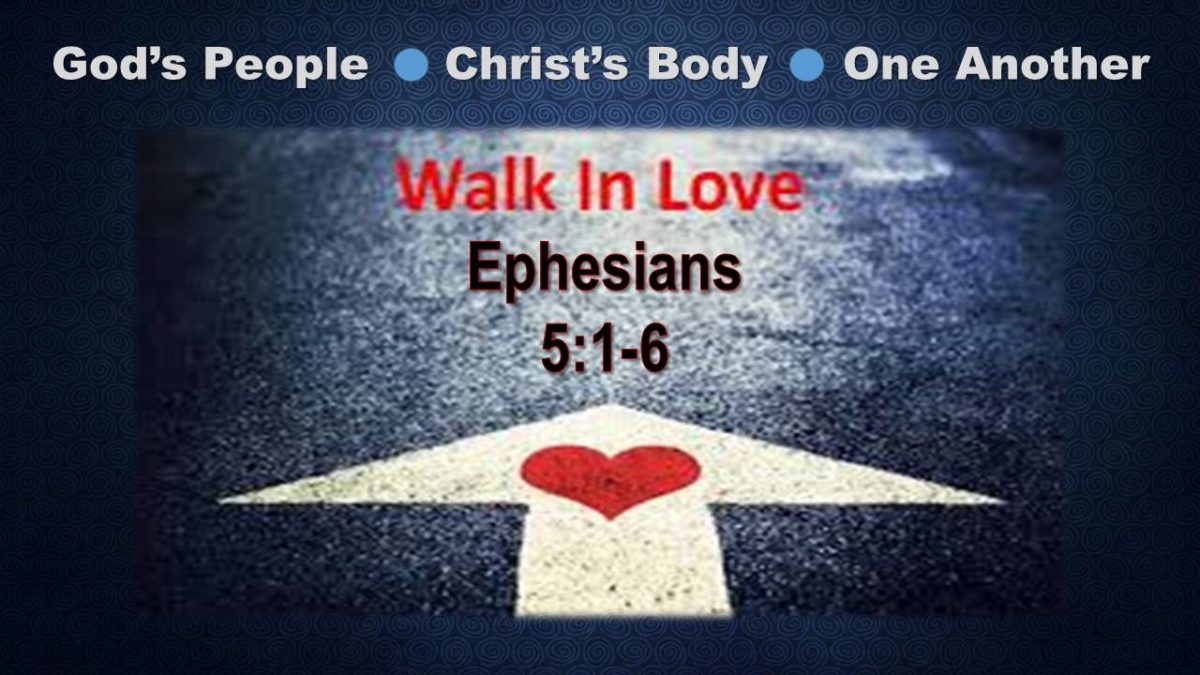It’s a busy weekend in the Northwoods, especially for us at Woodland where our women are off on retreat—sleigh rides, glow-in-the dark snowshoeing, lots of chatting. This is good, for our wives and mothers, and for us dads connecting with kids!
But, before I get back to my own kids, here’s the briefest of thoughts on tomorrow’s message.
Ephesians 5.1-6 continues Paul’s practical description of our church life together in Christ. In response to our calling as God’s people, we’re to walk together, in love.
We’re to walk in love, building up (:1-2). This involves imitating God, knowing we’re dearly loved, satisfied children of the Father. And, verse 2 tells us whom we’re to look at, especially when we don’t know what to do. And walk in love, as Christ loved us and gave himself up for us, a fragrant offering and sacrifice to God (:5a, ESV).
Christ, our example, demonstrated agape-love. This is the main word used in the New Testament to describe God’s love for us. It’s sacrificial love that seeks the highest good in the beloved. In walking together, we’re to look at Jesus and seek the wellbeing of others.
In contrast, we’re not to walk in evil, tearing down (:3-6). While the word isn’t actually used in the New Testament, the description of “sexual immorality … impurity … and covetousness” describes eros, another Greek word for love that involves the consuming of the beloved. This is the false, devouring “love” Ephesian believers would have recognized in their city brothels and pagan temples. It’s what we’d recognize as pornographic “love” that doesn’t consider the well-being of the recipient.
This possessive consuming of one another is “not to be even named among you …” It’s not that sin can’t be called out, it’s that it should be universally absent.
Conversation that tears down should, likewise be absent (:4). Instead, there should be thanksgiving for one another in the family of God. This thanksgiving looks like giving thanks that we’re in a family with wives (true), but also mothers and, yes, sisters in Christ. (Think: 1 Timothy. 1.2).
Failing to put old, erotic lifestyles in the “rag bag,” as we said last week, indicates we’ve created idols that result in God’s judgement (:5-6). Let no one deceive you with empty word, for because of these things the wrath of God comes upon the sons of disobedience.
It isn’t that Christians love perfectly, it is that we’re not to be characterized those who are under God’s wrath now (Rm 1.18), or who will experience God’s wrath at Christ’s return (Rm 2.5). God’s Kingdom is received by faith, and it looks like a people walking together in self-sacrificial love for one another.
And, whom do we look to all along? You got it!
To walk in love, look at Jesus!
Here’s a few questions to consider as we walk together:
Verse 6 indicates that we might be deceived with empty words as we seek to walk in love. What are some of the false messages regarding sexual sin, in particular, that we could hear in the church?
Why is it so important that the force of the passage is really in verses 1-2, where we’re given the example of Christ? Why couldn’t Paul just tear into the problem in verse 3 where he gives examples of consuming “love”?
For us as men and as women, what should love for those of the opposite gender look like in the church? Consider, again, 1 Timothy 5.1-2. What relational categories does the Bible recognize?

